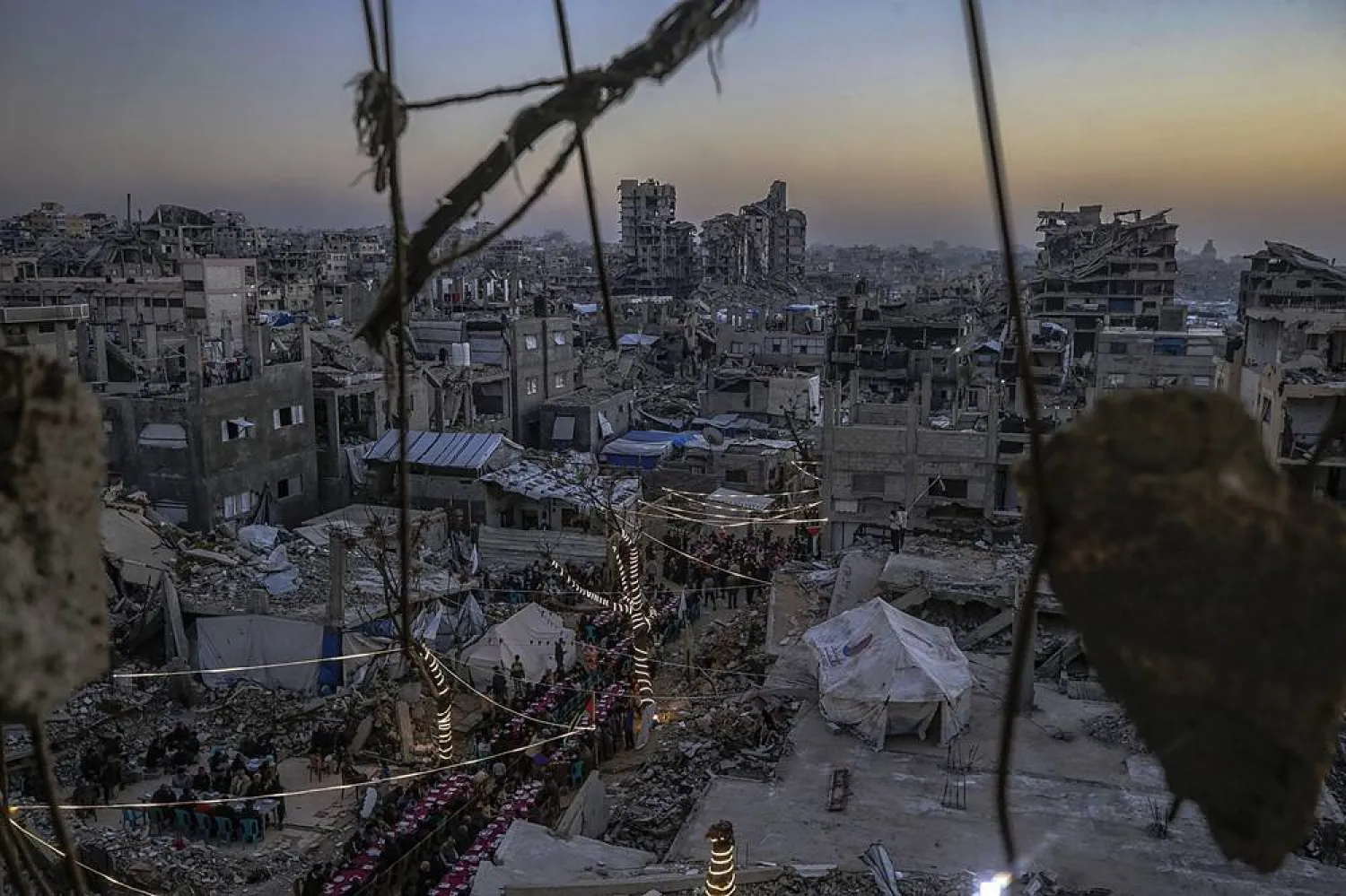Israeli fighter jets bombed the Zorob family’s two-story home in the Gaza Strip in 2019, leaving nothing but a pile of debris and despair.
Four years later, the 10-member family lives in a 20-square-meter (215-square-foot) hut covered with nylon sheets as they wait to move into a permanent home.
A sprawling housing project, part of a $500-million Egyptian-funded renewal effort in Gaza, has raised hopes for hundreds of needy families like the Zorobs who have lost their homes in the conflict with Israel.
But weeks before the spotless white buildings are set to be completed, there is no word on who qualifies for the 1,400 apartments — or even how to apply for one, as Gaza’s Hamas rulers and the rival, internationally recognized Palestinian Authority bicker over who will be in charge.
“No one cares,” said 31-year-old Mohammed Zorob, blaming both sides for the delays. “They are sitting under air conditioners with their children and they don’t care about us.”
The Zorobs are among an estimated 2,000 families, or roughly 12,000 people, whose homes have been destroyed in fighting with Israel in recent years, according to Gaza’s Housing Ministry. An additional 90,000 people live in damaged homes that have not been repaired, it said, The AP reported.
In 2007, Hamas, an Islamic militant group that opposes Israel’s existence, seized control of Gaza from the PA a year after winning parliamentary elections. The violent takeover left the PA in control only of semi-autonomous areas of the Israeli-occupied West Bank, even as it claims to be the legitimate international representative of both areas.
Israel considers Hamas a terrorist group and immediately imposed a blockade with Egypt in what it says is a measure to prevent Hamas from arming. The closure has devastated Gaza’s economy and helped fuel four wars and numerous smaller rounds of violence. Repeated reconciliation attempts by Hamas and the PA have failed.
The project marks the first Egyptian-funded infrastructure project in the enclave following a series of Arab-funded developments meant to ease Gaza’s housing crunch. Egypt, which often mediates between Israel and Hamas as well as between the rival Palestinian factions, announced the aid after an eight-day war in 2021.
Two senior Egyptian officials confirmed the Cairo government is working with the rival Palestinian factions on the project. They said Egypt has called on the sides to form a joint committee to oversee the distribution of homes, but little progress has been made.
“Unfortunately, each side wants to control the process,” said one official, noting that the matter had come up in discussions during a recent visit to Egypt by Palestinian President Mahmoud Abbas. “This is not a project for either Hamas or Fatah. It’s for the Palestinian people.”
Jawad al-Agha, the deputy housing minister in Gaza’s Hamas-led government, said his office has submitted a proposal to Egypt on how the apartments should be allocated. But he gave no details and said no decisions have been made, pending a meeting between the sides.
The deadlock has left thousands of families in limbo. Most have been waiting for nearly a decade, after losing their homes during a 50-day war between Israel and Hamas in 2014.
The Zorob family home was struck during a 2019 battle between Israel and the Islamic Jihad militant group. Moments before the airstrike, Israel called the family and ordered them to evacuate. No one was hurt, but the home was destroyed.
The family said it has no connection to any militant group and does not know why their home was targeted.
Mohammed Zorob, father of a 2-month-old, said he had spent five years building an apartment on the second floor of the building. “Imagine spending five years of your life building your home, and in a blink of an eye, Israel targets the building,” he said.
His father, Moneer, said conditions in their ramshackle home are intolerable. “I suffer the heat, humidity, and in the winter we suffer from water leaking into the house,” he said. The one-room house in the family's front yard — made of concrete and nylon — includes a cramped kitchenette and small toilet.
Moneer’s wife, Maha, said caring for a grown daughter with cancer has added to the difficulties. Her daughter has a weak immune system and must be kept away from relatives with even a common cold.
“Where can I isolate her while I have one room only?” she said.
Ibrahim Abrash, a former Cabinet minister and political writer, said international donor nations have become frustrated with the repeated cycles of violence and distracted by other crises, most notably the war in Ukraine.
But he said the ongoing fighting between the Palestinian Authority and Hamas remains a major obstacle to repairing Gaza.
“When donors, Egypt or others, grant money, the question is, 'Who is the legitimate Palestinian party that can be trusted to supervise?'” he said.
Hazem Isleem, a 42-year-old father of seven, echoes the disillusionment felt by many.
Working as a security guard at Gaza City’s Shifa Hospital, Isleem had the harrowing experience of watching his own family come through the hospital gates. His 11-year-old daughter Farah lost a leg in the 2021 conflict that also destroyed their home. The family now lives in a rented apartment he can barely afford.
“Once word got out about these new housing units, I clung to hope. But that hope is turning into despair,” he said.
Isleem said he has made frequent visits to the Housing Ministry, leaving each time with more questions than answers.
“We’re living in a state of perpetual uncertainty,” he said.









